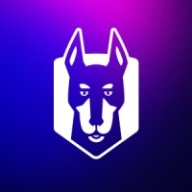

Snyk and Amazon EKS are competitive solutions in cybersecurity and cloud orchestration. Snyk is noted for integration simplicity and affordable pricing, appealing to developers. Amazon EKS is preferred for robust orchestration and scalability, breaking applications into microservices.
Features: Snyk is valued for its integration simplicity and compatibility with source control and cloud systems. Its Slack notifications and comprehensive vulnerability databases are especially useful. The self-service model supports developer-friendly use throughout the software lifecycle. Amazon EKS features robust orchestration, auto-scaling, and seamless deployment in AWS, helping break applications into microservices.
Room for Improvement: Snyk could improve by expanding language support, offering SAST/DAST solutions, and better IDE and third-party integration. Improved notification filtering and runtime analysis could enhance user control. Amazon EKS needs more stable plugin integrations and solutions for past networking issues, along with more flexible and cost-effective offerings.
Ease of Deployment and Customer Service: Both Snyk and Amazon EKS provide multiple deployment options across cloud environments. Snyk's technical support is praised for quick, helpful responses. Amazon EKS is known for seamless support and technical expertise, though users desire faster, more detailed responses for complex setups.
Pricing and ROI: Snyk offers valuable pricing with various tiers and licenses for developers, seen as worth the premium cost for quality. Amazon EKS is cost-effective with flexible usage-based pricing. Both solutions show clear ROI, Snyk through time savings in vulnerability management, and Amazon EKS in cost efficiencies via streamlined operations and scalability.
Initially, not having them resulted in an unoptimized solution. However, with these tools in place, we witnessed a reduction of costs by approximately a third—if it was $100 beforehand, we brought costs down to $25.
Tasks that used to take hours are now completed in minutes, resulting in a 10 to 15% freeing up of resources' time for cross-skilling or further contributions.
Developer productivity and onboarding have also improved, leading to 60 to 70% faster onboarding and faster time to market.
I can see that Snyk saves the costs of hiring security developers for vulnerability scanning and security checks, as that responsibility is now managed by Snyk.
We didn't need to manage etcd and those control management tools; it's totally handled from the AWS side, making it very beneficial.
I believe there should be a recovery solution available for at least a few hours so that we might bring it back.
They will set up a call, guide us, or provide solutions regarding integration with AWS or Amazon EKS.
Our long-standing association has ensured smooth communication, resulting in favorable support experiences and satisfactory issue resolution.
Their response time aligns with their SLA commitments.
We could understand the implementation of the product and other features without the need for human interaction.
The ability to scale based on requirements by deploying additional containers is a strong point for Kubernetes.
This allows us to scale our applications or APIs as needed, offering reliability through the automation of scaling processes.
If any node is not ready, the cluster autoscaler ensures that it is removed from the AWS auto-scaling group and replaces it with a new node in the cluster.
Snyk allows for scaling across large organizations, accommodating tens of thousands of applications and over 60,000 repositories.
Snyk is very scalable and can handle my organization's growth and changing needs.
There are multiple availability zones in the regions, meaning no single point of failure.
The control plane is quite stable in Amazon EKS, and I find it to be 100% available.
We haven't faced any challenges, and it consistently delivers on its committed SLA.
Simplifying these will enable more people, not just those with strong foundational knowledge, to work effectively with these services.
Amazon EKS can be improved by having the maintenance of Kubernetes versions managed better, as everything is handled by the Kubernetes team and possibly a separate team at AWS.
Adding logging would be a valuable improvement.
It lacks the ability to select branches on its Web UI, forcing users to rely on CLI or CI/CD for that functionality.
The inclusion of AI to remove false positives would be beneficial.
As we are moving toward GenAI, we expect Snyk to leverage AI features to improve code scanning findings.
The EKS service itself is free, but you will incur costs for the VMs used as nodes in that cluster.
If you want to monitor costs effectively, applying separate tools and acting accordingly in advance is essential.
I appreciate the overall pricing model of AWS, where you pay based on usage, which allows for a clear understanding of costs associated with services.
Snyk is recognized as the cheapest option we have evaluated.
After negotiations, we received a special package with a good price point.
Snyk is less expensive.
The most beneficial aspect of Amazon EKS is that it helps manage the Kubernetes master node, so I don't need to maintain the master node, including tasks like upgrading.
The main benefits that I received from using Amazon EKS are that it is a managed cluster and offers simplicity.
By default, if you just install Amazon EKS, you can deploy your application, but to have it enterprise-ready, you have to configure a number of other things that will boost productivity.
Our integration of Snyk into GitHub allows us to automatically scan codebases and identify issues, which has improved efficiency.
Snyk helps detect vulnerabilities before code moves to production, allowing for integration with DevOps and providing a shift-left advantage by identifying and fixing bugs before deployment.
Snyk has positively impacted my organization by improving the security posture across all software repositories, resulting in fewer critical vulnerabilities, more confidence in overall product security, and faster security compliance for project clients.
| Product | Market Share (%) |
|---|---|
| Snyk | 4.8% |
| Amazon EKS | 0.3% |
| Other | 94.9% |


| Company Size | Count |
|---|---|
| Small Business | 32 |
| Midsize Enterprise | 23 |
| Large Enterprise | 46 |
| Company Size | Count |
|---|---|
| Small Business | 21 |
| Midsize Enterprise | 9 |
| Large Enterprise | 21 |
Amazon Elastic Kubernetes Service (Amazon EKS) is a fully managed Kubernetes service. Customers such as Intel, Snap, Intuit, GoDaddy, and Autodesk trust EKS to run their most sensitive and mission critical applications because of its security, reliability, and scalability.
EKS is the best place to run Kubernetes for several reasons. First, you can choose to run your EKS clusters using AWS Fargate, which is serverless compute for containers. Fargate removes the need to provision and manage servers, lets you specify and pay for resources per application, and improves security through application isolation by design. Second, EKS is deeply integrated with services such as Amazon CloudWatch, Auto Scaling Groups, AWS Identity and Access Management (IAM), and Amazon Virtual Private Cloud (VPC), providing you a seamless experience to monitor, scale, and load-balance your applications. Third, EKS integrates with AWS App Mesh and provides a Kubernetes native experience to consume service mesh features and bring rich observability, traffic controls and security features to applications. Additionally, EKS provides a scalable and highly-available control plane that runs across multiple availability zones to eliminate a single point of failure.
EKS runs upstream Kubernetes and is certified Kubernetes conformant so you can leverage all benefits of open source tooling from the community. You can also easily migrate any standard Kubernetes application to EKS without needing to refactor your code.
Snyk excels in integrating security within the development lifecycle, providing teams with an AI Trust Platform that combines speed with security efficiency, ensuring robust AI application development.
Snyk empowers developers with AI-ready engines offering broad coverage, accuracy, and speed essential for modern development. With AI-powered visibility and security, Snyk allows proactive threat prevention and swift threat remediation. The platform supports shifts toward LLM engineering and AI code analysis, enhancing security and development productivity. Snyk collaborates with GenAI coding assistants for improved productivity and AI application threat management. Platform extensibility supports evolving standards with API access and native integrations, ensuring comprehensive and seamless security embedding in development tools.
What are Snyk's standout features?Industries leverage Snyk for security in CI/CD pipelines by automating checks for dependency vulnerabilities and managing open-source licenses. Its Docker and Kubernetes scanning capabilities enhance container security, supporting a proactive security approach. Integrations with platforms like GitHub and Azure DevOps optimize implementation across diverse software environments.
We monitor all Container Security reviews to prevent fraudulent reviews and keep review quality high. We do not post reviews by company employees or direct competitors. We validate each review for authenticity via cross-reference with LinkedIn, and personal follow-up with the reviewer when necessary.